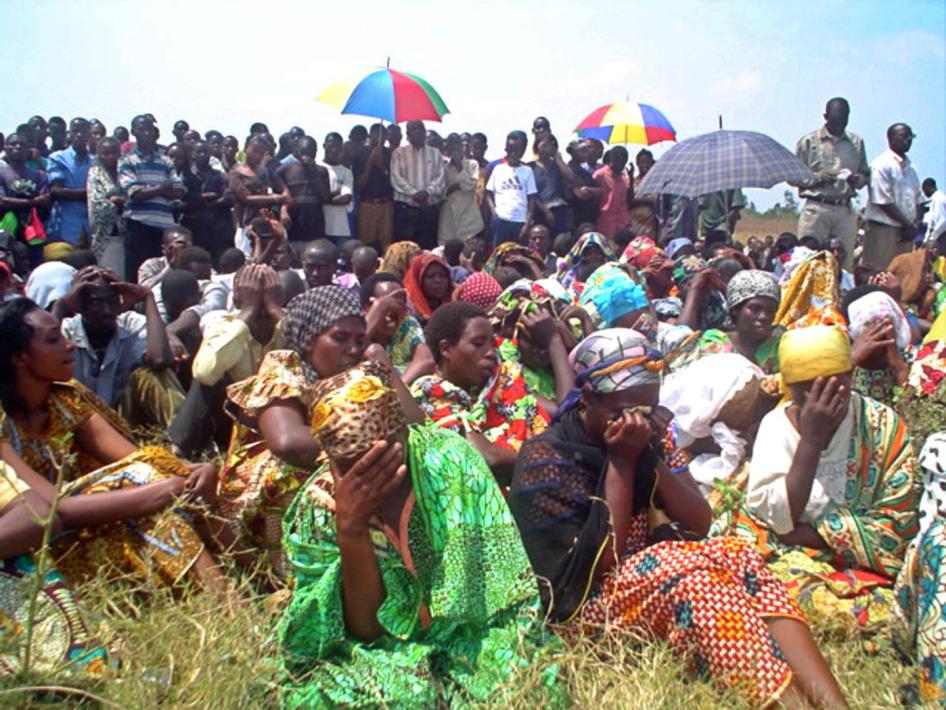Survivors and relatives of victims of a 2004 attack on the Gatumba refugee camp in Burundi have filed criminal cases against alleged perpetrators in their home countries of Burundi, Rwanda, and the Democratic Republic of Congo. The complaints, which allege genocide and crimes against humanity, are an effort to secure justice two decades later. The lawyer involved in these cases said this information has also been communicated to the International Criminal Court in the Hague.
On August 13, 2004, the National Forces of Liberation (Forces nationales de libération, FNL) targeted mostly Banyamulenge refugees—Congolese Tutsi from South Kivu province in eastern Congo—at the Gatumba camp, close to the Congolese border. More than 150 civilians were killed and another 106 were injured. The refugees had fled fighting in Congo. The FNL, a predominantly Hutu Burundian rebel movement, fired upon and burned to death the Banyamulenge refugees, while sparing refugees from other ethnic groups and Burundians also living in the camp.
Human Rights Watch research at the time found that the Burundian armed forces failed to intervene, even though the slaughter took place within a few hundred meters of military camps. Soldiers of the United Nations peacekeeping force were unable to protect the refugees because they only learned of the attack when it was over.
The FNL claimed responsibility soon after the massacre. Several years later, however, its then-spokesperson, Pasteur Habimana, denied making that statement. In 2009, the armed group disarmed and became a political party, marking the end of the civil war.
In 2004, Burundian authorities issued arrest warrants for two FNL leaders, including Agathon Rwasa, a prominent opposition figure. However, he was never arrested. In September 2013, judicial authorities announced the opening of a case against Rwasa for alleged war crimes and crimes against humanity committed in Gatumba, but proceedings were delayed indefinitely.
The new complaints explicitly implicate Rwasa and Habimana, according to the lawyer involved in the cases.
Despite years of delays, prosecuting those responsible for this heinous massacre would help bring closure to those affected by the killings and demonstrate that justice can be obtained for the Great Lakes region’s worst atrocities.








